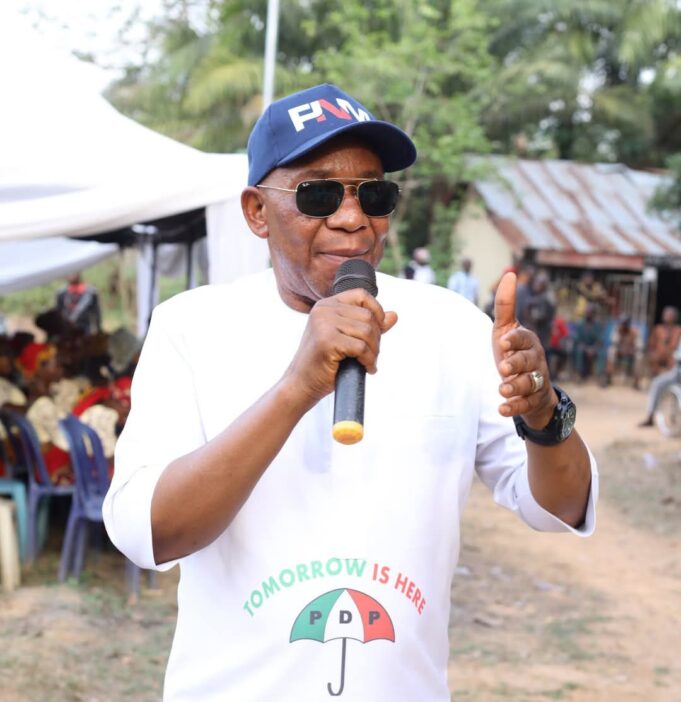…Pledges to Integrate Preventive Solutions into Council’s Development Agenda
As the global community marks World Malaria Day 2025 with the theme “Malaria Ends with Us: Reinvest, Reimagine, Reignite,” the Executive Chairman of Nkanu West Local Government Area of Enugu State, Hon. John Ogbodo, is leading a renewed grassroots campaign to tackle the malaria scourge head-on.
In a statement on Friday, Hon. Ogbodo emphasized that malaria remains one of the deadliest yet most preventable diseases affecting humankind.
“The fight against malaria must be personal and collective. Our people continue to suffer and die from a disease that is both treatable and avoidable,” he said.
The Nkanu West council boss noted that the local government is stepping up efforts to ensure better sanitation, improved health education, and timely access to malaria treatment kits.
“The distribution of insecticide-treated nets, door-to-door sensitization and a cleanup drive targeting stagnant water and blocked drainages, known breeding grounds for mosquitoes, are part of the current administration’s efforts to stem the tide against the scourge.”
“We’re not just sharing mosquito nets. We’re empowering households with knowledge and creating systems to monitor and sustain action against this disease,” he added.
DAILY GAZETTE reports that Nigeria accounts for 27% of global malaria cases and 32% of global malaria deaths, according to the World Health Organization.
In 2023 alone, over 68 million Nigerians were diagnosed with malaria, with more than 200,000 fatalities, majority of them children under five and pregnant women.
Despite years of national efforts, including seasonal malaria chemoprevention and artemisinin-based combination therapy, the country has yet to make significant progress.
Experts attribute this stagnation to corruption, inconsistent funding, and poor implementation of policies at the grassroots level.
There is a need for increased budgetary allocation to health, especially in light of the Abuja Declaration of 2001, where African nations pledged to allocate 15% of their national budgets to health, a target Nigeria has consistently failed to meet.
Hon. Ogbodo, however, pledged to integrate malaria prevention into the local government’s development agenda.
“Plans are underway to involve schools, religious institutions and youth in regular environmental sanitation drives and health campaigns.”
“There’s no silver bullet. But with consistent community-led interventions, proper funding, and innovative approaches, such as mobile health tracking and real-time data dashboards, we can bring malaria to its knees in Enugu and beyond.”
Chief Ogbodo reaffirmed the council’s commitment to turning the tide against a disease that has claimed too many lives for far too long.

















